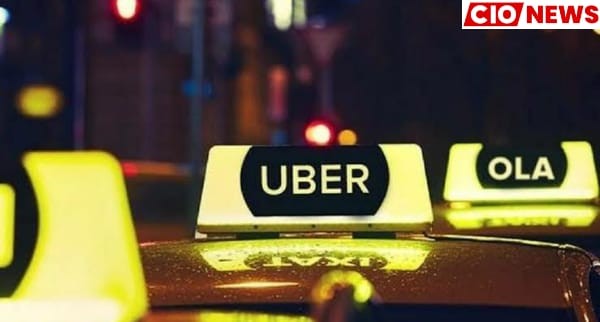The pandemic forced both Ola and Uber to put a sudden brake on their plans.
Before the world realized the enormous impact of Covid-19, the ride-hailing companies Ola and Uber just seemed set for a long drive of fast-paced growth.
After covering most of India’s major cities and towns, Ola began to expand its services internationally, including in key global markets such as London and Sydney. Uber also seemed to have found its mojo back, in particular with its food delivery company, Uber Eats, registering healthy growth in several markets.
However, the pandemic has forced both these companies to place a sudden brake on their plans. With the ride-hailing almost coming to a stop, Ola ‘s revenue decreased by almost 95% in April and May. Uber, too, had a big sales hit as the rides business had been a major contributor.
How hard the pandemic hit these two companies that revolutionized mobility solutions can be gauged from the latest developments surrounding their businesses.
Ola Co-founder & CEO, Bhavish Aggarwal, in May told the employees that the company would have to reduce the staff strength by 1,400 as the company wanted to conserve as much cash as possible due to the impact of the pandemic which dried up its revenue.
Only last week, two top executives of the company resigned.
“Arun Srinivas, Chief Sales & Marketing Officer and Sanjiv Saddy, Senior Vice President- Corporate Affairs, are moving on to pursue other opportunities outside of Ola. The organization wishes them well in their future endeavours,” an Ola spokesperson said.
Similarly, in May, Uber India announced its decision to lay off some 600 full-time workers due to the effects of the coronavirus crisis. Globally, Uber reportedly reduced its workforce by nearly 6,700 people in Covid-19 and planned to slash investment in non-core ventures.
Such was the effect of the pandemic on the ride-hailing giant that it officially decided to close down 45 offices worldwide, including one in Mumbai, resulting in job losses for many.
Will these ride-hailing companies find a way to get stronger when the pandemic ends?
Although rides have started to return in some cities as countries around the world continue to re-open their economies, hitting the pre-Covid stage still seems too far away.
In the meantime, Uber has found that its delivery company will make up some of the losses. In reality, the company officially launched the supply of grocery goods this month.
“Over the last six months, it’s become increasingly clear that grocery delivery is not only popular but often a necessity. We expect to see this trend continue as people across the world look for new ways to save time and stay safe,” Uber said in a statement on July 7, while announcing its grocery delivery business.
Uber announced its partnership with the Cornershop Grocery Delivery Startup for a new service first launched in selected cities in Latin America and Canada.
The business said it plans to roll out new sourcing features for consumers and retailers in the U.S. and other cities around the world in the coming months.
Apart from the cost-saving measures, Ola, on the other hand, has not made any significant diversification of business that could help to compensate for the losses incurred as a result of the Covid-19-induced reduction in the size of the business.
The only major hint of how Ola ‘s business will be shaped in the coming days came in a May announcement that, following the acquisition of the Amsterdam-based electric scooter-maker Etergo, the company will launch its electric two-wheeler for global markets.
Ola feels that electric two-wheelers will become even more relevant in the post-Covid world.
Many are now also concerned that with growing safety concerns, there may be some reluctance to share rides with anyone even after the pandemic has ended.
“The future of mobility is electric, and the post-COVID world presents an opportunity for us to accelerate the adoption of electric mobility globally. Every year, almost twice the number of two-wheelers are sold across the world compared to cars,” Aggarwal, who is also the Founder & Chairman, Ola Electric, said.
“With electric, digitally connected capabilities, two-wheelers will further emerge as the most preferred urban mobility paradigm around the world and empower every consumer. We look forward to building the best global capabilities in engineering, design, and manufacturing for these products to be made here in India.”






